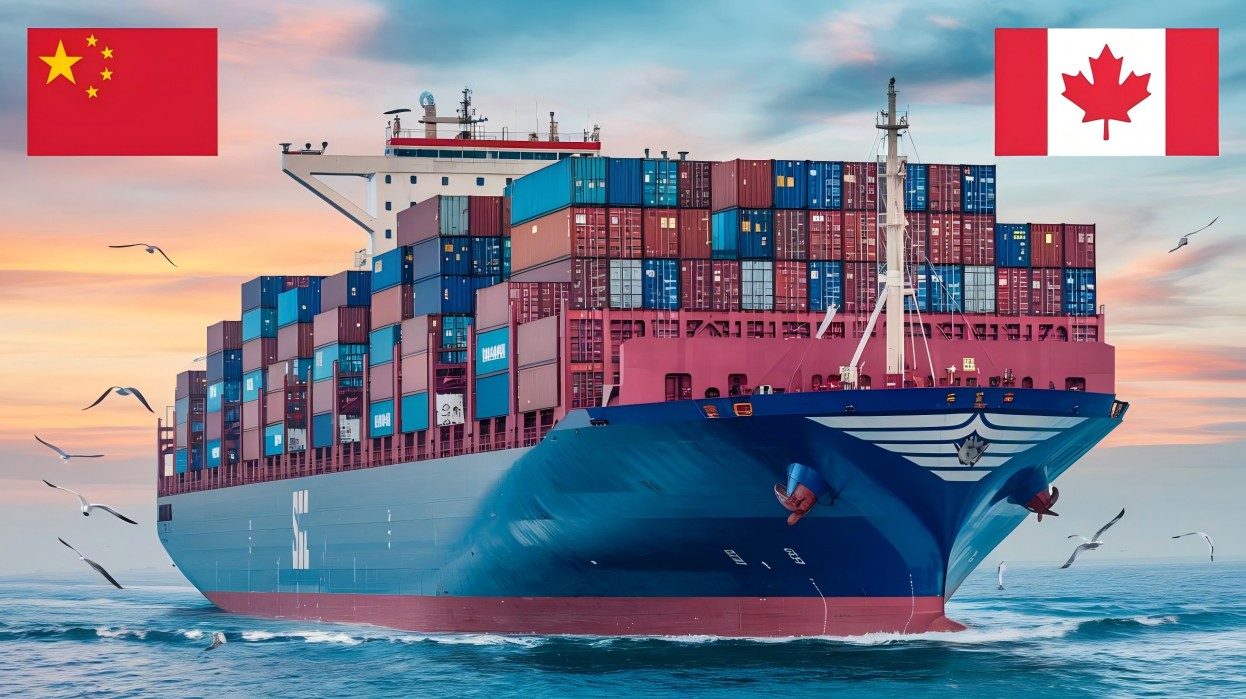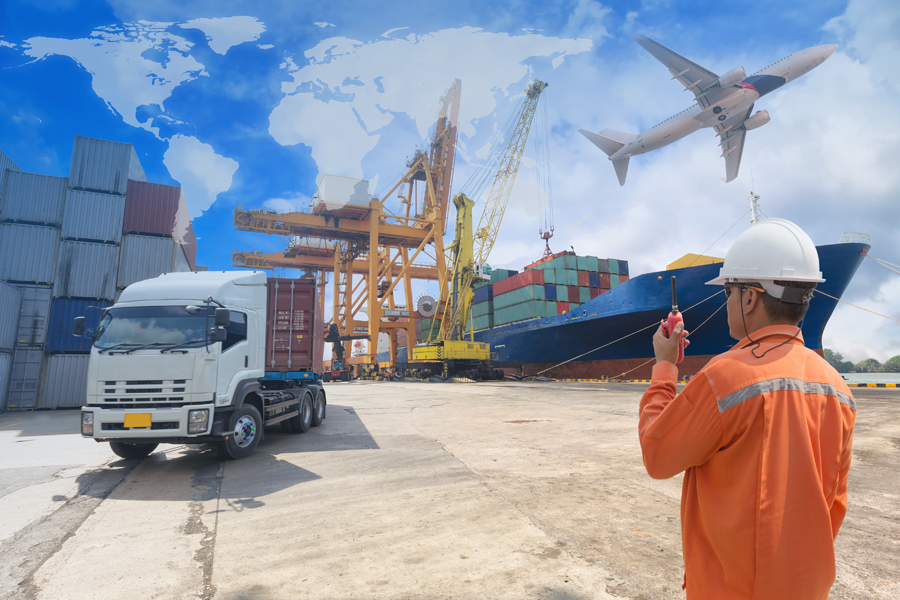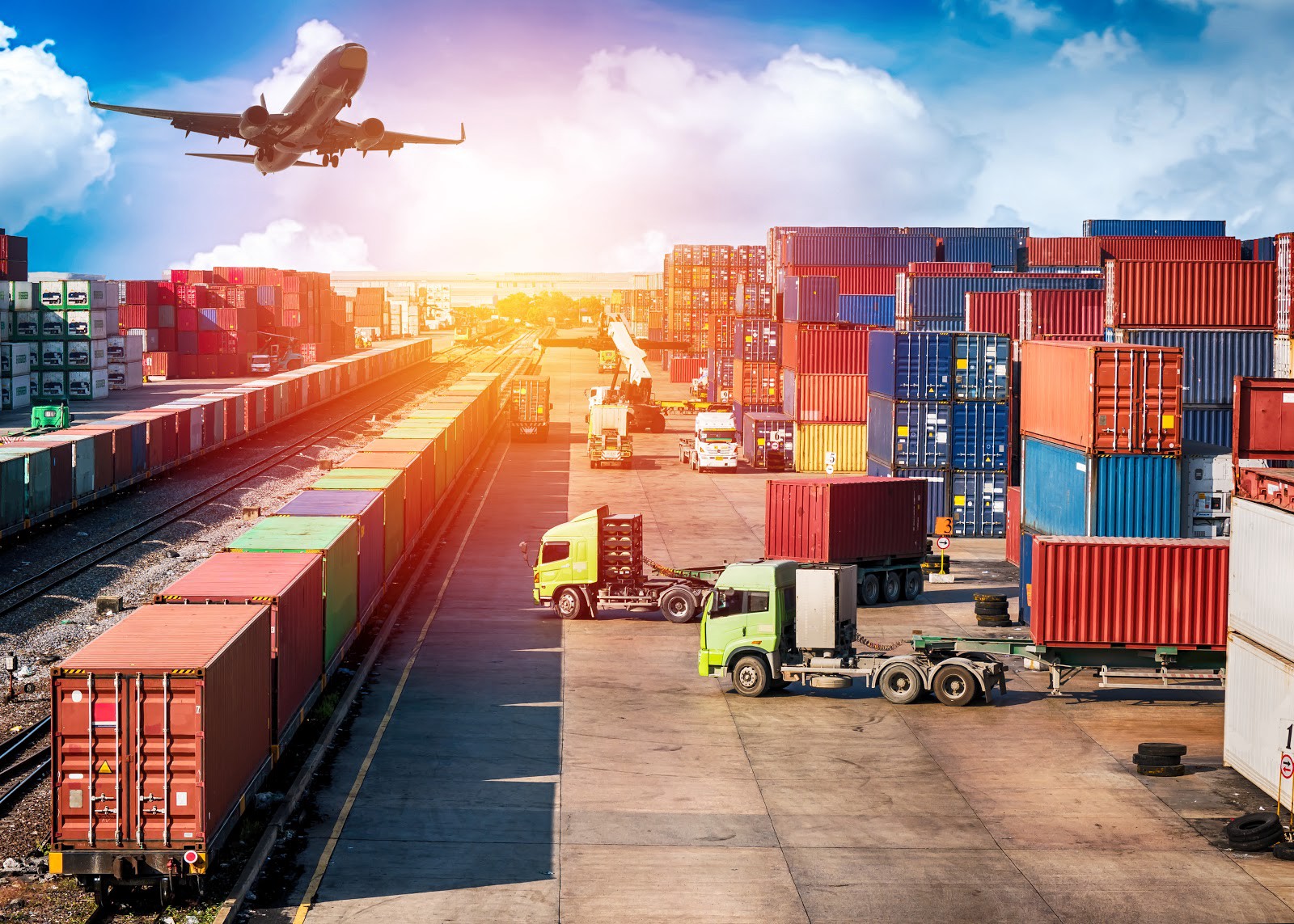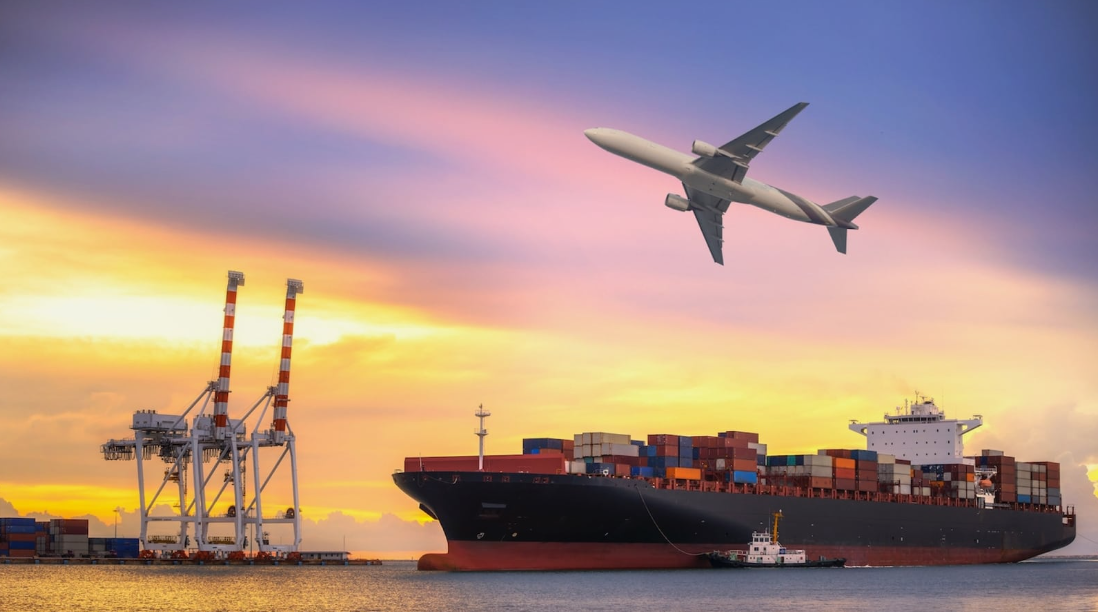Navigating the complexities of freight forwarding can be a daunting task, especially when shipping goods from China to Belgium. Understanding the nuances of international logistics, including customs regulations, shipping methods, and potential challenges, is essential for ensuring a smooth and efficient shipping process. This comprehensive guide will provide you with valuable insights into the various shipping options available, key factors to consider when selecting a freight forwarder, and practical tips for overcoming common challenges. Whether you’re a seasoned importer or new to global trade, these strategies will help streamline your logistics operations and enhance your overall shipping experience.

Understanding Freight Forwarding Services
A freight forwarder acts as an intermediary between shippers and transportation services. They are crucial for moving goods from one international destination to another, coordinating logistics and ensuring timely delivery. Freight forwarders handle a variety of tasks, including documentation, customs clearance, transportation arrangement, and insurance procurement. By leveraging their expertise and established networks, they simplify the complex processes of global shipping.
Key Responsibilities and Services Offered
Freight forwarders offer a wide array of services designed to facilitate smooth international shipping. Some of their key responsibilities include:
- Customs Clearance: Ensuring that all necessary documentation is prepared for importing and exporting goods, allowing for hassle-free movement across borders.
- Insurance Services: Offering protection against potential losses or damages during transit, thus securing the investment of shippers.
- Warehousing Services: Providing storage solutions for cargo before or after shipment, which can be critical for managing inventory and meeting delivery timelines.
- Transportation Coordination: Managing the logistics of moving freight via air, sea, or land, and selecting the most efficient routes and methods.
- Consultation and Guidance: Offering expertise on the best shipping practices, regulatory compliance, and cost-effective strategies.
Understanding these services helps businesses streamline their shipping processes and minimize logistical challenges.
Shipping Options from China to Belgium
When considering shipping from China to Belgium, businesses have several options tailored to their needs, including air and sea freight. Each method comes with its own advantages, costs, and transit times, which should be carefully evaluated.
Air Freight
Transit Times and Costs
Air freight is often the fastest shipping method, with transit times typically ranging from 3 to 7 days. This option is ideal for high-value or time-sensitive cargo. Costs can vary widely based on factors such as weight, dimensions, and destination specifics. Generally, air freight tends to be more expensive than sea freight, but it compensates with quicker delivery times.
| Transport Method | Average Transit Time | Cost Range (USD/kg) |
|---|---|---|
| Air Freight | 3-7 days | $5 – $12 |
Major Airports and Airlines
Key airports involved in air freight from China to Belgium include Brussels Airport (BRU) and Antwerp International Airport (ANR). Major airlines providing services on this route include:
- Air China
- China Eastern Airlines
- Lufthansa Cargo
- KLM Cargo
These airlines offer regular flights that facilitate the quick movement of goods between China and Belgium.
Sea Freight
FCL (Full Container Load) vs. LCL (Less than Container Load)
Sea freight is the predominant shipping method for large volumes of cargo and can be categorized into:
- Full Container Load (FCL): This option is suitable for shipments that fill an entire container, offering better rates per unit and faster transit times. Ideal for businesses needing to ship large quantities.
- Less than Container Load (LCL): This is a cost-effective solution for smaller shipments that do not fill a full container. Though it may take longer due to consolidation processes, it provides flexibility for shippers on a budget.
| Shipping Method | Typical Volume | Cost Efficiency | Transit Time |
|---|---|---|---|
| FCL | > 15 cubic meters | High | 20-30 days |
| LCL | < 15 cubic meters | Moderate | 25-45 days |
Main Ports and Shipping Routes
The primary sea routes connecting China and Belgium are served by major shipping ports, including:
- Shanghai: One of the busiest ports in the world, offering extensive shipping services.
- Shenzhen: A major hub for exports, especially electronics and manufactured goods.
- Antwerp: Belgium’s leading port, known for its efficiency and extensive logistics capabilities.
Shipping lines such as Maersk, CMA CGM, and Hapag-Lloyd operate regular services between these ports, facilitating reliable sea freight options.
Express Shipping for Urgent Cargo
For businesses that require expedited delivery, express shipping is available. This service combines air freight with priority handling, ensuring that shipments reach their destination in the shortest possible time, generally within 1 to 3 days. While this method incurs higher costs, it is invaluable for urgent shipments or critical inventory replenishments.
In the context of global trade, choosing the right shipping option is essential for maintaining competitiveness and ensuring customer satisfaction.
For businesses looking to simplify their logistics and enhance their international shipping capabilities, partnering with a reliable freight forwarder like Dantful International Logistics can provide cost-effective and high-quality solutions. Dantful specializes in door-to-door shipping services, customs clearance, and comprehensive logistics management, ensuring your goods move seamlessly from China to Belgium and beyond.
Read More:
- Shipping From China To Netherlands
- Shipping From China To Spain
- Shipping From China To Germany
- Shipping From China To France
- Shipping From China to Italy
- Shipping From China To Poland
- Shipping From China to United Kingdom
Factors to Consider When Choosing a Freight Forwarder
Experience and Expertise in China-Belgium Trade
Freight forwarders with a proven track record in China-Belgium trade will offer valuable insights into the unique challenges and requirements specific to this route. Their familiarity with local regulations, shipping routes, and customs procedures can significantly streamline the logistics process.
Range of Services Offered
A diverse portfolio of services can simplify your logistics management. Look for freight forwarders that provide a comprehensive suite of options, including:
- Air freight and sea freight services
- Customs clearance assistance
- Insurance services
- Warehousing and distribution
- Door-to-door shipping solutions
Having a single partner for these services can reduce complexity and enhance efficiency.
Network and Partnerships in Both Countries
A robust network of connections in both China and Belgium is essential for reliable service. Forwarders with established relationships with carriers, customs agents, and local authorities can facilitate smoother operations. This network can also lead to better negotiation of shipping rates and priority handling of shipments.
Pricing and Cost Transparency
Transparent pricing is crucial for budgeting and financial planning. Freight forwarders should provide detailed quotes that outline all associated costs, including handling fees, documentation charges, and potential additional expenses. Understanding the total cost of shipping will help you avoid unexpected surprises later in the process.
Communication and Customer Service
Efficient communication is vital for maintaining successful logistics operations. Evaluate the freight forwarder’s responsiveness and willingness to address your questions and concerns. Strong customer service can make a significant difference in resolving issues quickly and effectively.
Technology and Tracking Capabilities
In today’s digital age, technology plays a key role in logistics. A forwarder that offers advanced tracking capabilities and digital tools will allow you to monitor your shipments in real-time. This transparency can enhance your control over the logistics process and improve overall operational efficiency.
Customs Clearance Expertise
Navigating customs regulations can be challenging, particularly with the unique requirements of both China and Belgium. A forwarder with expertise in customs clearance will ensure that all necessary documentation is handled correctly, minimizing the risk of delays or penalties. Their familiarity with the customs process can expedite the clearance of goods.
Insurance Options
Insurance is a critical aspect of shipping, protecting your investment against loss or damage during transit. Consider freight forwarders that offer comprehensive insurance options tailored to your needs. Understanding the extent of coverage and the claims process can provide peace of mind as you ship your goods.
Steps to Select the Right Freight Forwarder from China to Belgium
Identifying the best freight forwarder for your specific needs involves a systematic approach. The following steps can guide you in making an informed choice.
Assess Your Specific Shipping Needs
Determine your shipping requirements, including the type of goods, shipping volume, preferred transit times, and any special handling needs. Understanding these factors will help you communicate your expectations effectively to potential forwarders.
Research Potential Forwarders
Conduct thorough research into various freight forwarders specializing in shipping from China to Belgium. Look for companies with a solid reputation, positive reviews, and suitable experience in your industry. Utilize online resources, industry forums, and professional networks to gather information.
Request and Compare Quotes
Reach out to multiple freight forwarders to request quotes tailored to your specific shipping needs. Compare the rates, service offerings, and terms of each quote carefully. This comparison will help you identify the most cost-effective and suitable option for your business.
Check References and Reviews
Before making a decision, seek references from previous clients or check online reviews. This feedback can provide insight into the freight forwarder’s reliability, professionalism, and overall customer satisfaction. Look for patterns in feedback to gauge the forwarder’s capabilities.
Evaluate Communication and Responsiveness
Assess how potential forwarders communicate during your interactions. Quick, clear, and professional communication is indicative of a freight forwarder’s commitment to customer service. Consider how well they address your inquiries and provide information.
Consider a Trial Shipment
If possible, conduct a trial shipment with your chosen freight forwarder to evaluate their performance. This will allow you to assess their efficiency, reliability, and overall service quality before committing to a long-term partnership. Observing their handling of your shipment will provide valuable insights into their capabilities.
Selecting the right freight forwarder for shipping from China to Belgium requires careful consideration and research. Businesses can optimize their logistics operations by focusing on these essential factors and following a systematic selection process. For organizations seeking a reliable partner in this domain, Dantful International Logistics offers a highly professional, cost-effective, and comprehensive solution tailored for global traders.
Common Challenges and How to Avoid Them
Customs Delays and Documentation Issues
One of the most prevalent challenges in international shipping is customs delays, often caused by incomplete or incorrect documentation. Errors in paperwork can lead to significant delays, disrupting delivery schedules and incurring additional costs.
How to Avoid:
- Thorough Documentation Review: Ensure all shipping documents, including invoices, packing lists, and certificates of origin, are accurate and complete. Familiarize yourself with the specific documentation requirements for both China and Belgium.
- Freight Forwarder Expertise: Partner with a freight forwarder like Dantful International Logistics, who has extensive expertise in customs clearance. Their knowledge of local regulations can help prevent delays and ensure compliance.
Hidden Costs and Fees
Many businesses encounter unexpected costs associated with shipping, which can significantly impact their budget. Hidden fees may arise from various sources, including terminal handling charges, documentation fees, or unexpected surcharges.
How to Avoid:
- Request Detailed Quotes: When soliciting quotes from freight forwarders, ask for a comprehensive breakdown of all costs involved. Ensure that you understand each fee and its purpose.
- Cost Transparency: Work with a freight forwarder that emphasizes cost transparency and provides clear terms regarding potential additional charges. A reputable forwarder will help you anticipate and manage these costs.
Cargo Damage or Loss
Cargo damage or loss during transport is a risk that poses a significant threat to businesses. Incidents can result from improper handling, inadequate packaging, or unforeseen circumstances during transit.
How to Avoid:
- Proper Packaging: Invest in high-quality packaging materials and techniques to protect goods from damage during transport. Ensure that your freight forwarder provides guidance on packaging best practices.
- Insurance Coverage: Secure appropriate insurance services to protect your shipment against potential damage or loss. Understand the terms and coverage limits of your insurance policy before shipping.
Communication Barriers
Effective communication is vital in logistics, but language differences and time zone challenges can create barriers between shippers and freight forwarders. Miscommunication can lead to misunderstandings, errors, and delays.
How to Avoid:
- Establish Clear Channels: Set up clear communication channels with your freight forwarder. Identify key contacts and agree on preferred methods for updates and inquiries.
- Regular Updates: Schedule regular updates or check-ins to discuss shipment progress and address any potential issues proactively. Utilizing collaboration tools can help streamline communication.
Tips for a Successful Partnership with Your Freight Forwarder
Clear Communication of Expectations
Establishing clear expectations is vital at the outset of your partnership. Clearly articulate your shipping needs, timelines, and any specific requirements or preferences. This will ensure that your freight forwarder understands your business objectives and can tailor their services accordingly.
Best Practices:
- Document Expectations: Create a detailed document outlining your shipping needs, including timelines, cargo handling preferences, and any compliance requirements.
- Encourage Feedback: Foster an environment where both parties feel comfortable providing feedback. This will improve collaboration and lead to continuous improvement.
Regular Performance Reviews
Conducting regular performance reviews allows you to assess the effectiveness of your freight forwarder’s services. These reviews can help identify areas for improvement and reinforce accountability.
Best Practices:
- Set Key Performance Indicators (KPIs): Establish clear KPIs to evaluate your freight forwarder’s performance, such as delivery times, cost efficiency, and communication responsiveness.
- Schedule Review Meetings: Plan regular meetings to discuss performance metrics and address any challenges or concerns. This proactive approach can lead to enhanced service quality over time.
Building a Long-Term Relationship
Establishing a long-term relationship with your freight forwarder can yield numerous benefits, including better pricing, enhanced service quality, and improved understanding of your business needs.
Best Practices:
- Consistent Engagement: Maintain consistent and open communication with your freight forwarder. Share updates about your business and any changes that may affect shipping requirements.
- Explore Collaboration Opportunities: Look for additional ways to collaborate, such as consolidating shipments or utilizing value-added services offered by your freight forwarder.
By addressing common challenges and fostering a successful partnership, businesses can maximize the benefits of working with a freight forwarder. For organizations seeking a reliable freight forwarding solution, Dantful International Logistics offers professional and comprehensive services designed to meet your shipping needs effectively.

Young Chiu is a seasoned logistics expert with over 15 years of experience in international freight forwarding and supply chain management. As CEO of Dantful International Logistics, Young is dedicated to providing valuable insights and practical advice to businesses navigating the complexities of global shipping.





















 Afrikaans
Afrikaans Shqip
Shqip አማርኛ
አማርኛ العربية
العربية Հայերեն
Հայերեն Azərbaycan dili
Azərbaycan dili Euskara
Euskara Беларуская мова
Беларуская мова বাংলা
বাংলা Bosanski
Bosanski Български
Български Català
Català Cebuano
Cebuano Chichewa
Chichewa 简体中文
简体中文 繁體中文
繁體中文 Corsu
Corsu Hrvatski
Hrvatski Čeština
Čeština Dansk
Dansk Nederlands
Nederlands English
English Esperanto
Esperanto Eesti
Eesti Filipino
Filipino Suomi
Suomi Français
Français Galego
Galego ქართული
ქართული Deutsch
Deutsch Ελληνικά
Ελληνικά Kreyol ayisyen
Kreyol ayisyen Harshen Hausa
Harshen Hausa Ōlelo Hawaiʻi
Ōlelo Hawaiʻi עִבְרִית
עִבְרִית हिन्दी
हिन्दी Hmong
Hmong Magyar
Magyar Íslenska
Íslenska Igbo
Igbo Bahasa Indonesia
Bahasa Indonesia Gaeilge
Gaeilge Italiano
Italiano 日本語
日本語 Basa Jawa
Basa Jawa ಕನ್ನಡ
ಕನ್ನಡ Қазақ тілі
Қазақ тілі ភាសាខ្មែរ
ភាសាខ្មែរ 한국어
한국어 كوردی
كوردی Кыргызча
Кыргызча ພາສາລາວ
ພາສາລາວ Latin
Latin Latviešu valoda
Latviešu valoda Lietuvių kalba
Lietuvių kalba Lëtzebuergesch
Lëtzebuergesch Македонски јазик
Македонски јазик Malagasy
Malagasy Bahasa Melayu
Bahasa Melayu മലയാളം
മലയാളം Maltese
Maltese Te Reo Māori
Te Reo Māori मराठी
मराठी Монгол
Монгол ဗမာစာ
ဗမာစာ नेपाली
नेपाली Norsk bokmål
Norsk bokmål پښتو
پښتو فارسی
فارسی Polski
Polski Português
Português ਪੰਜਾਬੀ
ਪੰਜਾਬੀ Română
Română Русский
Русский Samoan
Samoan Gàidhlig
Gàidhlig Српски језик
Српски језик Sesotho
Sesotho Shona
Shona سنڌي
سنڌي සිංහල
සිංහල Slovenčina
Slovenčina Slovenščina
Slovenščina Afsoomaali
Afsoomaali Español
Español Basa Sunda
Basa Sunda Kiswahili
Kiswahili Svenska
Svenska Тоҷикӣ
Тоҷикӣ தமிழ்
தமிழ் తెలుగు
తెలుగు ไทย
ไทย Türkçe
Türkçe Українська
Українська اردو
اردو O‘zbekcha
O‘zbekcha Tiếng Việt
Tiếng Việt Cymraeg
Cymraeg יידיש
יידיש Yorùbá
Yorùbá Zulu
Zulu